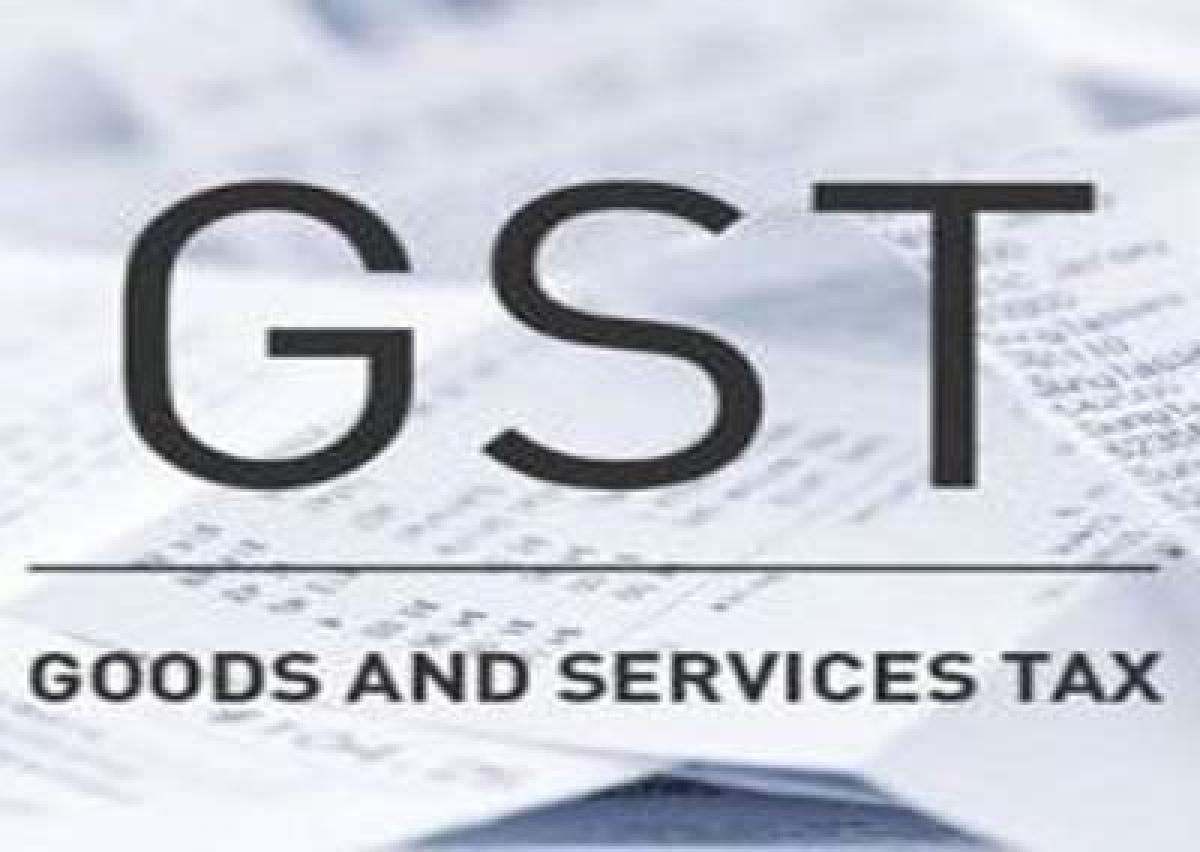Live
- Centre to celebrate Veer Bal Diwas nationwide
- CM for clear strategy to ensure Southern states get their due
- SCR cancels Sabarimala special trains citing low occupancy
- Vizianagaram: Youth fly drones to highlight bad road
- Vijayawada: Inter-district offender nabbed, Rs 26 lakh loot seized
- Congress cancels all programmes for 7 days in honour of Dr. Manmohan Singh
- Nara Lokesh Pays Tribute to Manmohan Singh, says he is a visionary leader
- 6th World Telugu Writers meet from Dec 28
- Sri City role in strengthening Atmanirbhar Bharat lauded
- PCC chief accuses PM of lying on Visakha steel
Just In

GST Rollout May Lead To 1 pc Rise In India\'s GDP Growth. Industry body Assocham on July 20 came out with a set of recommendations on the proposed Goods and Services Tax (GST), saying the rollout may lead to around 1 per cent rise in India\'s GDP growth.
.jpg) New Delhi: Industry body Assocham on July 20 came out with a set of recommendations on the proposed Goods and Services Tax (GST), saying the rollout may lead to around 1 per cent rise in India's GDP growth.
New Delhi: Industry body Assocham on July 20 came out with a set of recommendations on the proposed Goods and Services Tax (GST), saying the rollout may lead to around 1 per cent rise in India's GDP growth.
"Goods & Services Tax (GST) will be a game changer for the Indian economy. The new tax regime can lead to efficient resource allocation within the economy, improve tax compliance and positively impact GDP growth. "More importantly, the projected boost to the manufacturing sector will make the proposed taxes a critical enabler to actualise benefits from 'Make in India' initiatives," Assocham President Rana Kapoor said.
The short-term recommendations include formulation of a clear and unambiguous definition of goods & services, a revenue Neutral Rate (RNR) suitably determined to rationalise tax burden and evolving a consensus on threshold limit for GST application to protect small businesses.
"The implementation of GST would lead to a simplified tax regime and easier compliance norms. This is projected to increase GDP annually by 0.9-1.7 per cent with an accompanying increase in tax revenues of around 0.2 per cent of GDP.
"Twenty per cent reduction in logistics costs of non-bulk goods is expected due to a rationalised tax framework. This would make domestic production of goods and services more cost effective with ensuing 3.2-6.3 per cent annual gains in exports," Kapoor said.
The chamber also recommended formulation of clear 'Place of Supply' rules to avoid ambiguity in tax administration and a mechanism to compensate states for potential revenue loss from GST rollout without major distortion of its structure, etc.
It further suggested ease of compliance through common electronic standards for filing returns, paying taxes towards central, state or inter-state GST and allowing tax rebate for purchase through electronic payment methods to encourage more transactions within the banking channel.
The long-term recommendations include empowering the proposed GST Council, refund of tax on inputs availed by exporters, eliminating the concept of Works Contract by subsuming taxable activities within the ambit of GST, an assessee-friendly tax regime that encourages and rewards compliance and implementing periodic GST return filing.
The industry body recommended comprehensive training on legislation and procedures for tax administrators and integration of IT network of GST with the information systems of the Ministry of Corporate Affairs and the Central Board of Direct Taxes.

© 2024 Hyderabad Media House Limited/The Hans India. All rights reserved. Powered by hocalwire.com







